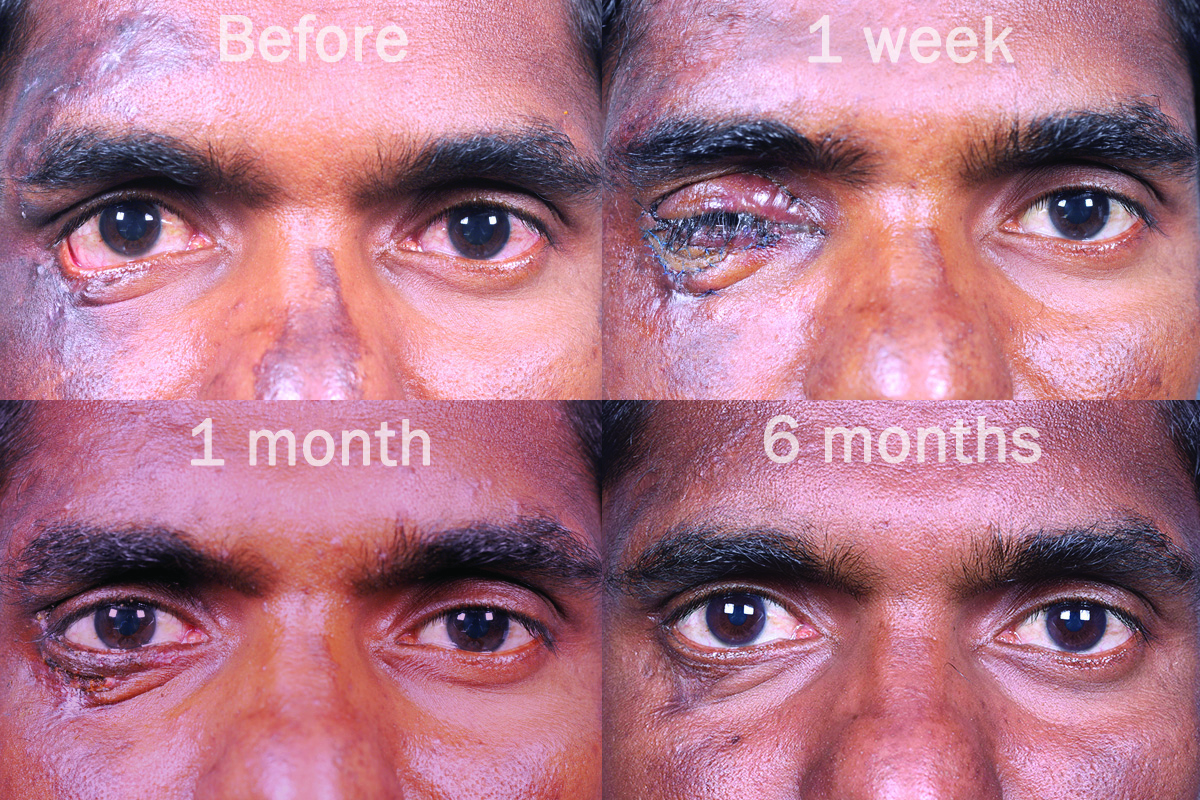

Orbit and Oculoplasty
Orbit and Oculoplasty deal with plastic and reconstructive
surgery around the eyeball. But why does one’s eye need
plastic surgery? Well, ophthalmic plastic surgery needs to be
performed to improve eye’s function, fixing eye-related
medical conditions and one’s appearance.
Oculoplastic and
orbital surgery is plastic surgery focused on the structures
surrounding the eye, including the eyelids, orbit (bones of
the eye socket), lacrimal system (tear duct system), forehead,
and midface area. Because surgery in these areas can affect
vision, ophthalmic plastic surgeons are best qualified to
perform this delicate surgery.
Conditions We Treat
A variety of diseases and injuries can affect the eyes, eyelids, and surrounding areas. Some conditions we typically treat with oculoplastic and orbital surgery include:
- Dry eye, obstructed tear duct, and other problems with tear production
- Ectropion: Eyelids that turn out, exposing the inner surface
- Entropion: Eyelids that turn inward, causing the lashes to rub the eye
- Exophthalmos: Eyes that protrude abnormally, sometimes referred to as "bulging eyes." Some eyes naturally sit more forward, but it can also be associated with a condition such as thyroid eye disease, orbital cyst or growth, or sinus issues.
- Eyelid cancer: Skin cancer cells or tumors that develop on or in the eyelid
- Injury or illness that affects the eye, eyelid, orbit, or other nearby structures
- Ptosis: Drooping upper eyelid
Common conditions that need oculoplasty:
An oculoplastic procedure is a type of surgery done around the eyes. Those suffering from conditions like
- droopy upper eyelids
- inward or outward eyelids
- eye problems caused by thyroid disease
- skin cancers or other growths in or around the eyes and injuries to the eye
Types of surgeries:
There are different types of oculoplastic procedures meant to correct different medical situations and cosmetic problems. Here are some of the commonly performed oculoplastic procedures:
- Blepharoplasty (Eyelid Surgery)
- Ptosis repair
- Orbital surgery
Preparing for the surgery
- See your eye surgeon as well as physician so that you have standard preoperative clearance. If you have any pre-existing medical conditions, you should see a specialist and get a clearance.
- Avoid certain medications: If you are on medication, inform your eye surgeon. You will be instructed whether you should avoid taking certain medications.
- Make arrangements for someone to pick you up the day of your surgery and stay with you to help you get settled.
Post-operative care
Post-operative care depends on the type of oculoplastic procedure done. The eye surgeon will give a list of dos and don’ts to follow at home. You will be asked to be careful when bathing for at least a week after surgery. You will be provided with instructions regarding cleaning the area around the incision. You will have to avoid activities like exercising or lifting heavy objects for about 1-2 weeks.



.png)

